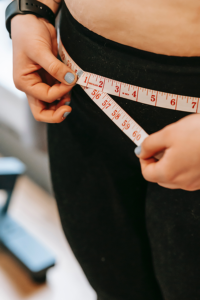
Cheat days have become a popular trend amount dieters and fitness enthusiasts alike. Life after bariatric surgery comes with many changes, the most significant being a change in your eating habits. Transitioning from a diet high in carbs and fatty foods to the typical post-op diet low in carbohydrates and high in protein can be daunting. You may have thought that one way to overcome this drastic change would be to allow yourself one cheat day to eat the foods that are off-limits after bariatric surgery.
However, cheat days create a negative narrative around certain foods - categorizing foods based on what is "good" and what is "bad."
"The very phrase 'cheat day' sets up enjoying a meal as something forbidden. Separating foods into 'good' and 'bad' categories encourages you to associate eating with guilt and shame."
— Sondra Kronberg, RD
 Although cheat days are socially acceptable in today's society and often endorsed by fitness enthusiasts and influencers, they can be detrimental to your health - both physical and psychological.
Although cheat days are socially acceptable in today's society and often endorsed by fitness enthusiasts and influencers, they can be detrimental to your health - both physical and psychological.
Cheat days lead to an all-or-nothing thought pattern that can result in binging or overeating because you begin to think that this is your “one chance” to enjoy the bad food. And it is not uncommon to feel guilt or shame after a binge eating episode, which almost always leads to stricter food restrictions or falling back into the bad habits for longer than you would have liked.
A study published in 2018 found that individuals who had cheat meals were more likely to experience disordered eating, such as binge eating or restrictive eating. Similarly, they were more likely to crave certain foods when they told themselves those foods were “off-limits.”
There are also physical detriments to binging after bariatric surgery. Having a cheat day where you eat high-carb, high-fat foods can lead to dumping syndrome—which, if you have ever experienced it, will never want to live through again. Dumping syndrome is a condition common after bariatric surgery due to the shortening of the intestines and occurs when the contents of your stomach empty through your intestines faster than usual. This can lead to nausea, cramping, sweating, diarrhea, dizziness, and rapid heart rate.
As a dietitian, I do not recommend cheat days. For many bariatric patients, being on a “diet” has been a way of life. And cheat days play into that diet-as-a-way-of-life mentality. After bariatric surgery, it is important to focus on your eating habits as a lifestyle change, not a diet! You want to foster a positive relationship with food.
Healthy Strategies to Still Enjoy Food
Nonetheless, it is possible to incorporate unhealthy foods into your diet after bariatric surgery, yet the key is to eat in moderation. When you are craving a particular food, allow yourself to enjoy it, regardless of the day of the week. Many people choose to “cheat” on weekends or vacations, but instead of focusing on deprivation, focus on treating yourself. However, that is not to say you can treat yourself every day, at every meal. Again, you want to focus on moderation. Don’t let one bad meal or one bad day turn into a bad week.
Another method to help shift your mentality is to think about food as nourishment instead of thinking in a way that buckets food into the good vs. the bad. Practicing food mindfulness can help foster a more positive and healthy relationship with food and eating after bariatric surgery.












